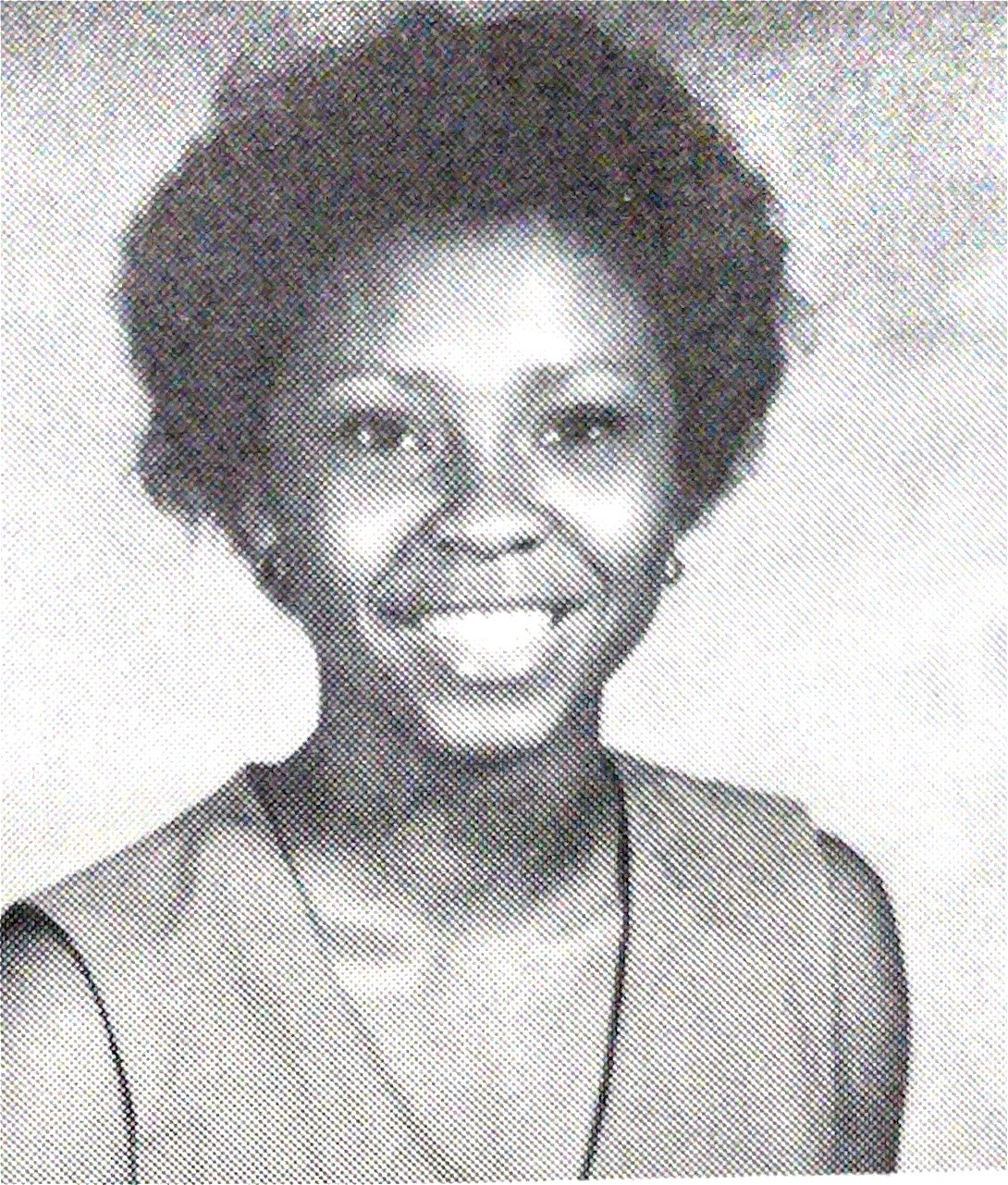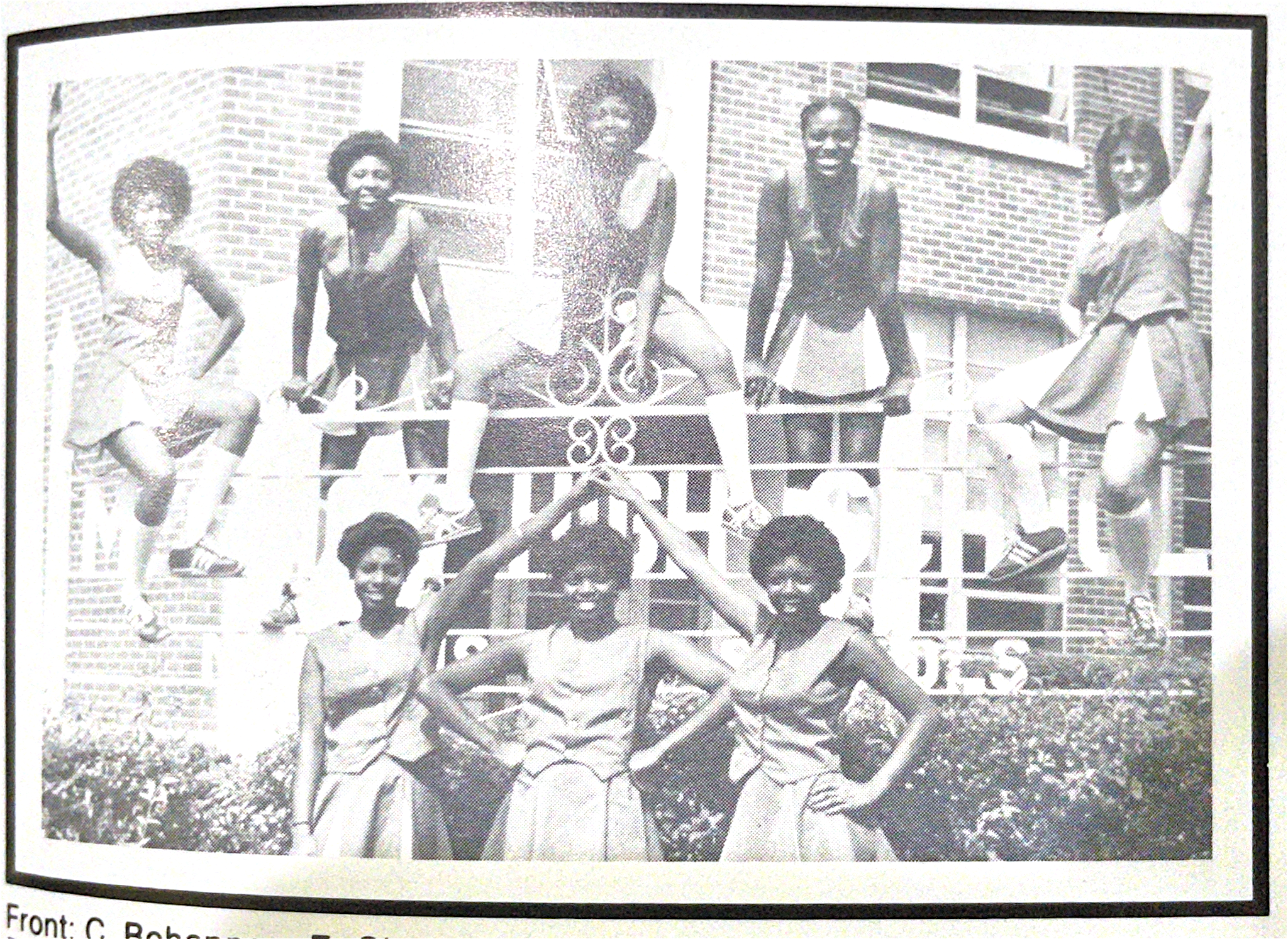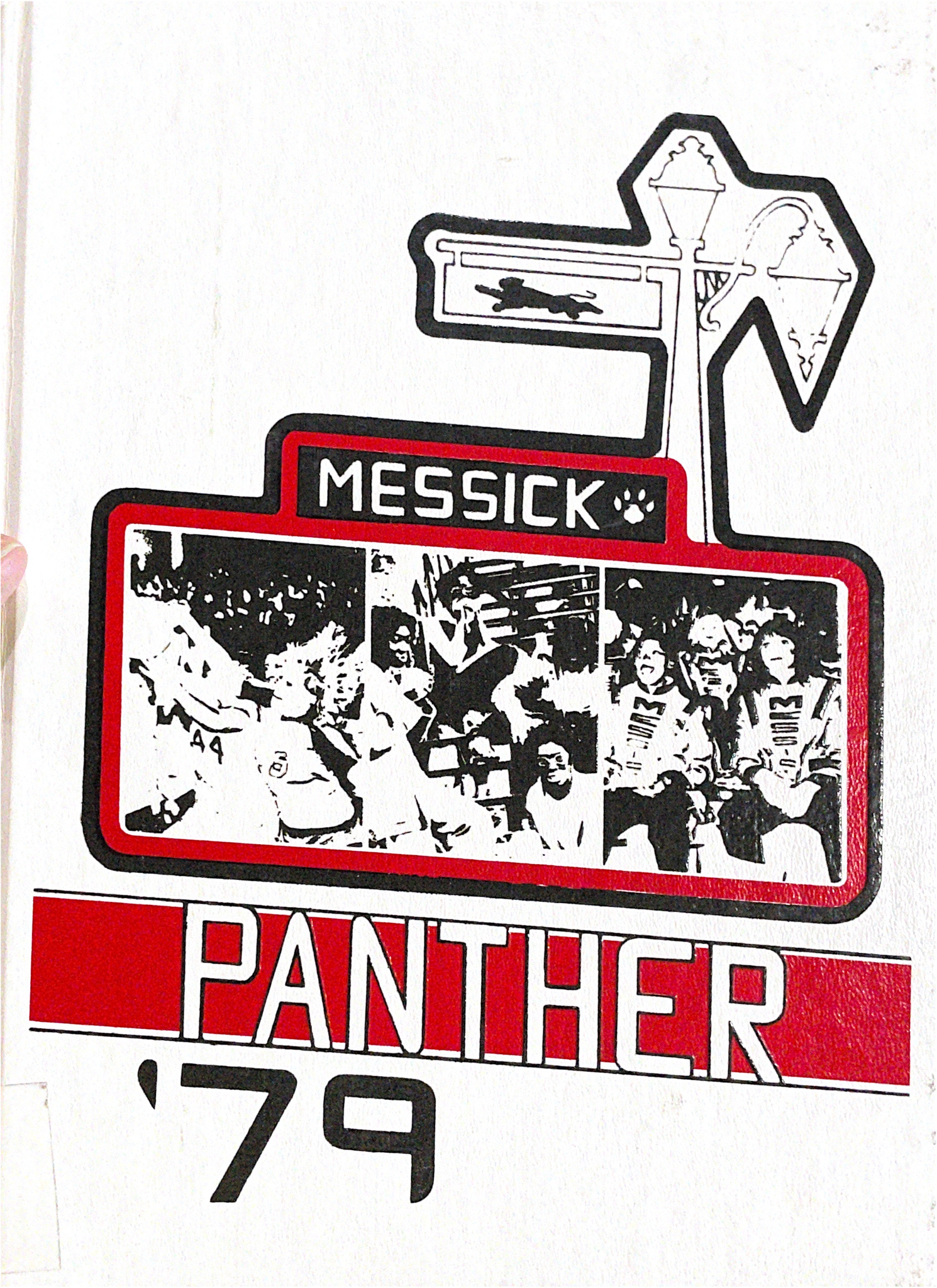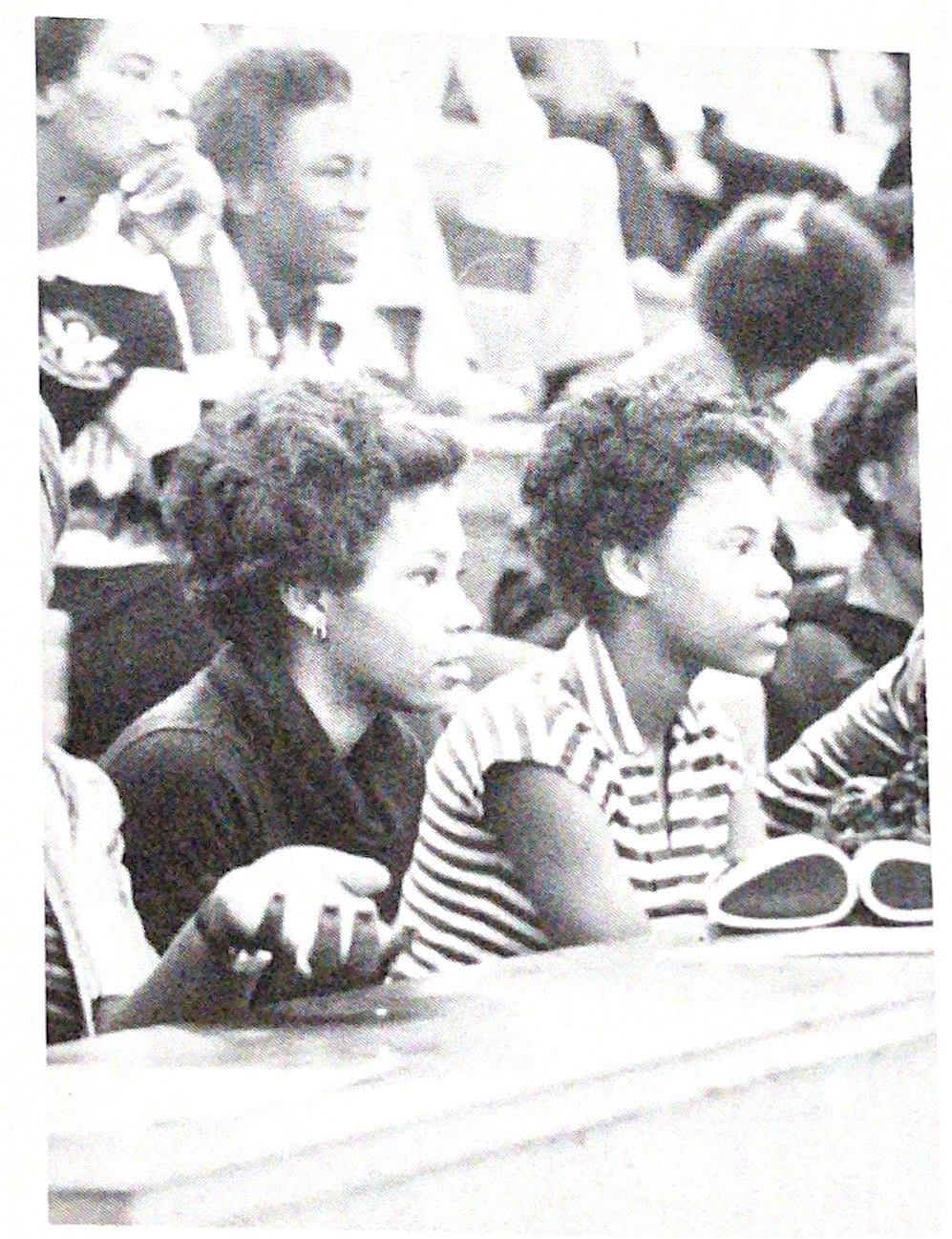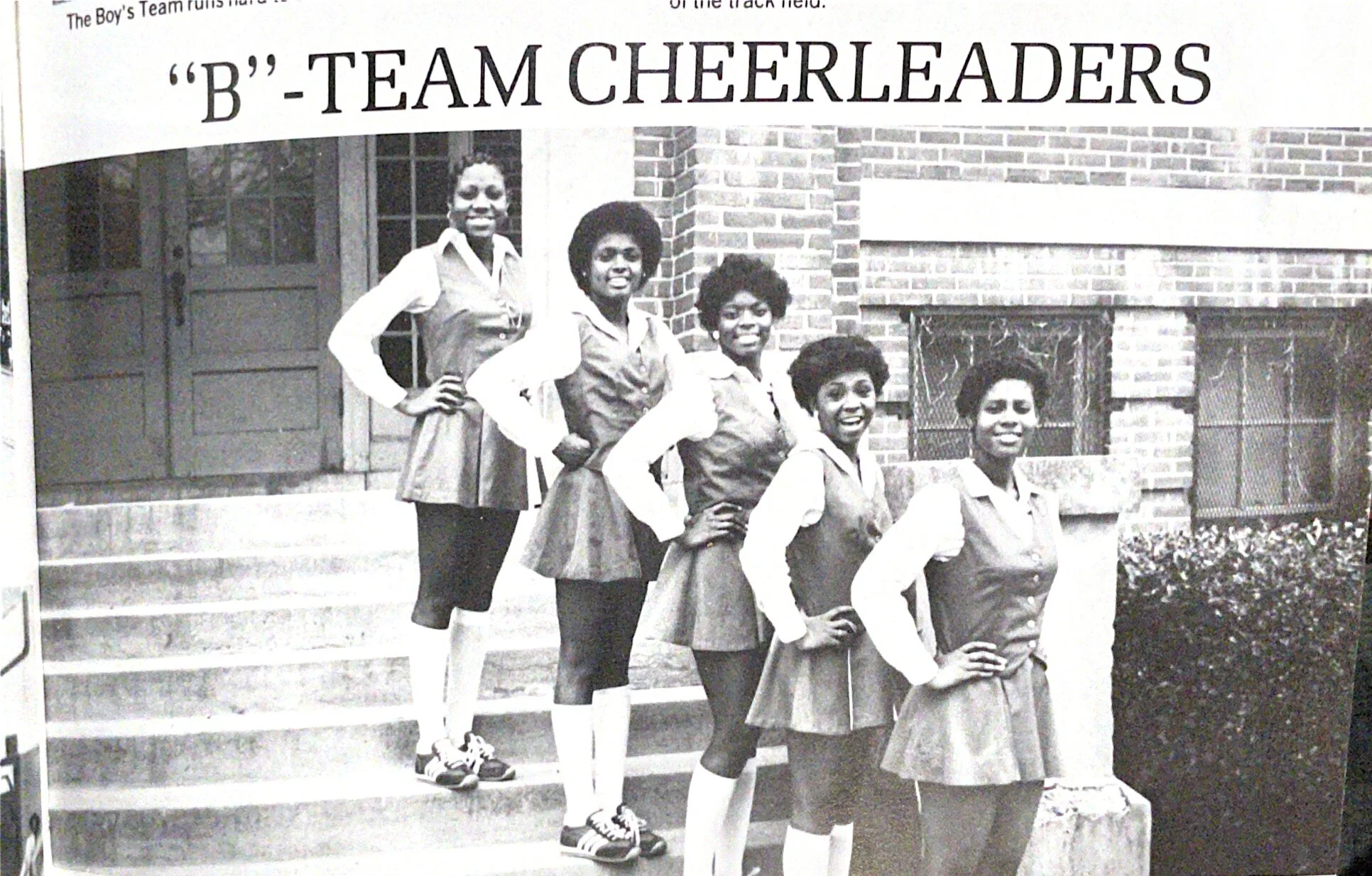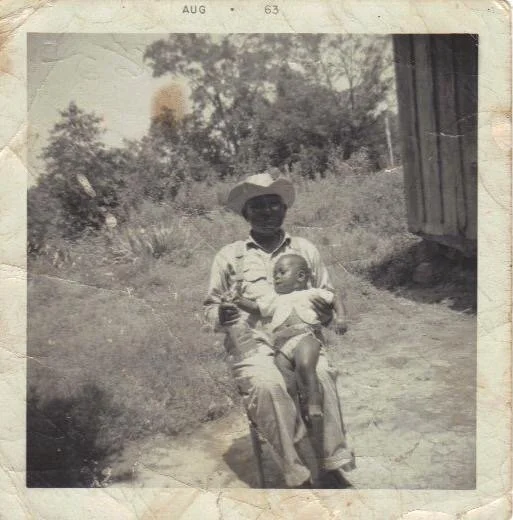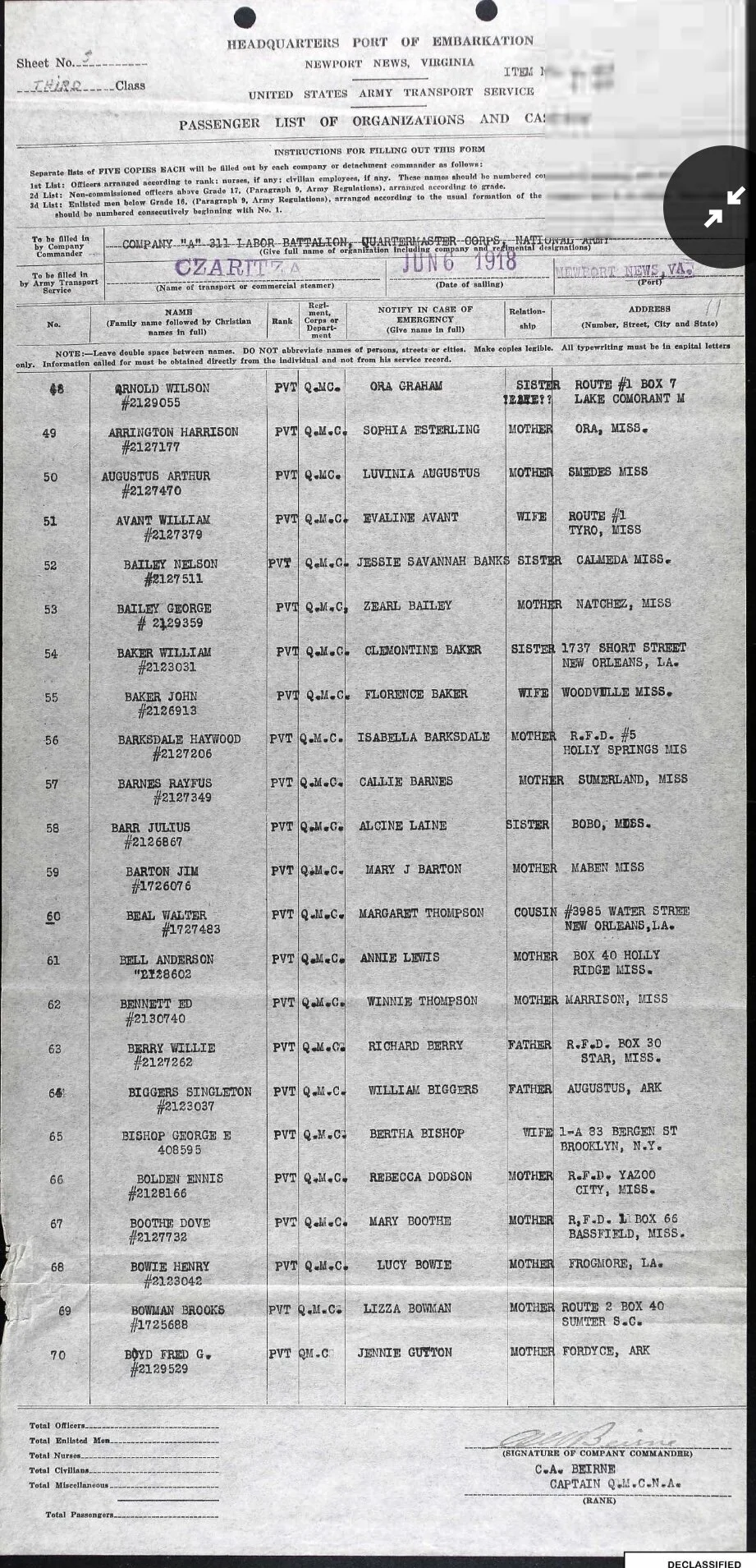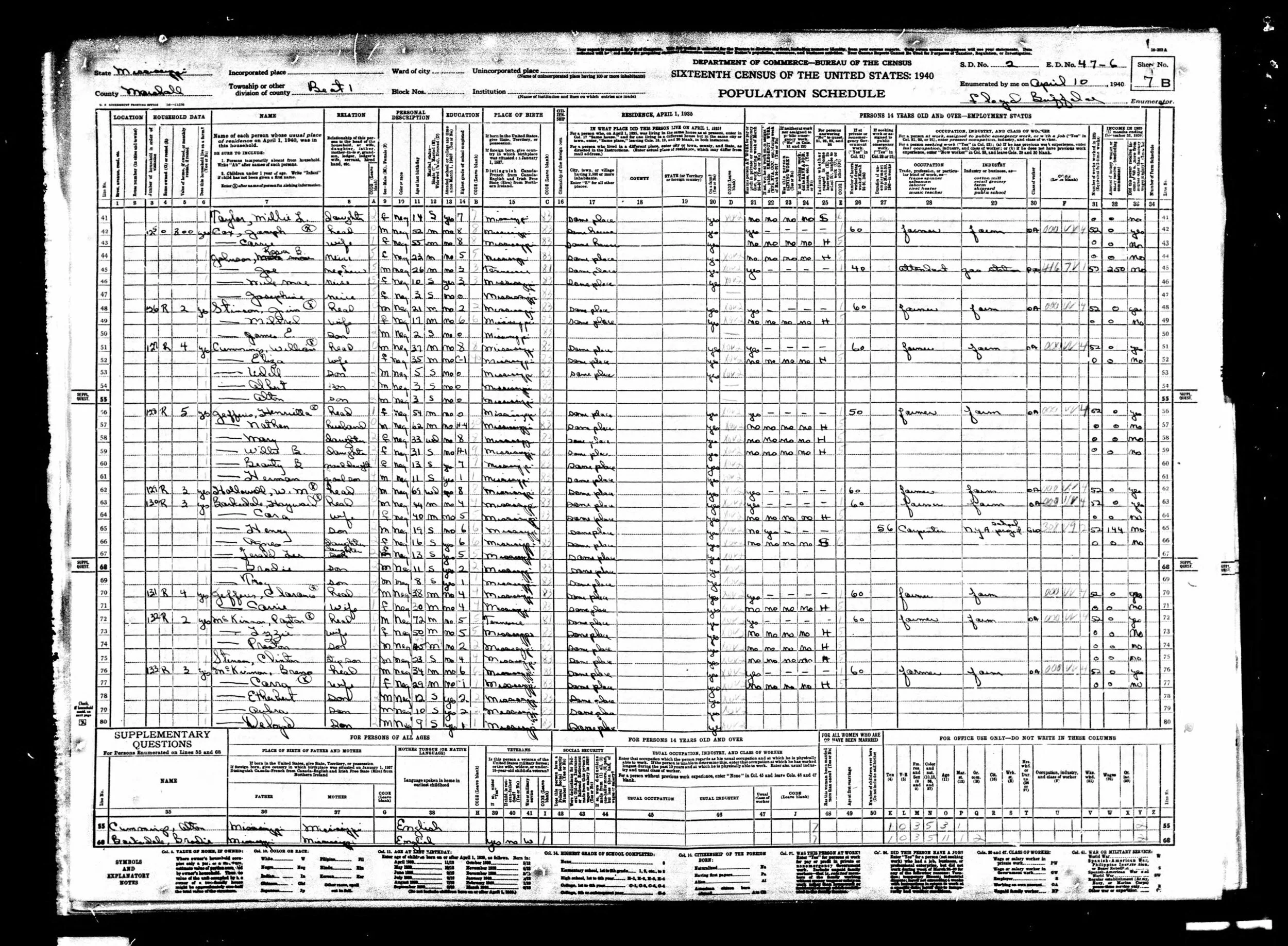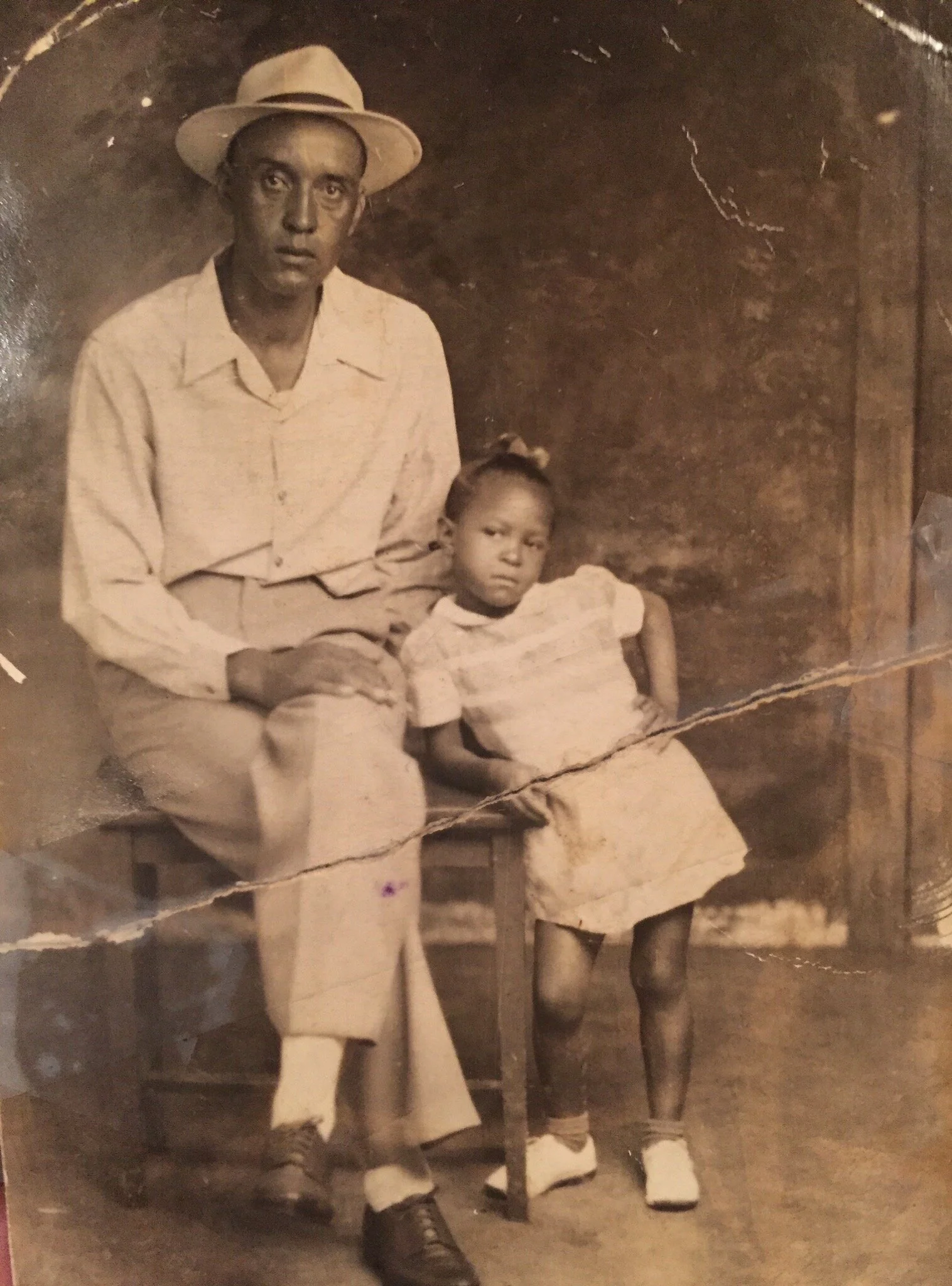Rooted
Bertha Thompson and LeRoy Thompson (Brother & Sister-Paternal)
Discovering Momma
Since a teenager, I searched for the narrative of my grandparents and my great-grandparents and beyond. I felt that piecing together my family's narrative started with the past. The further I could go back in my genealogy, the closer I came to piecing the puzzle of myself. However, in November 2019, my mother was diagnosed with Early Onset Alzheimer's Disease at 55 years old. The news came as a shock but no surprise. My sister and I knew something was off. My Mom was caring for our Dad, who has Parkinson's Disease. She took pride in a clean and organized house, home-cooked meals, and her enjoyment, like going shopping and “us”. All of those things started to decline before our eyes. So when the news came, our lives forever changed. I became the primary caregiver for my parents. I went on professional leave as a classroom teacher and eventually ended my career in education. I immersed my life into caring for my parents and re-organizing our lives. Then all in a whim, the Covid-19 pandemic hit us. Covid-19 uprooted our lives in ways we never imagined. I did not have a plan. Our sense of normalcy was long gone. For me, I lost interest in my passions like writing and reading. I was under a constant state of anxiety, not just for me but for my parent's well-being. As a result, I was forced to tackle Depression head on; something I battled with since 13 years old. As much as I wanted to quit, I am not a quitter nor was I born to be one. But, being a quitter does not have the traditional sense we may think. I took the difficult time in quarantine to heal, heavily self-reflect, and hold myself accountable for the growth needed. It was not easy to say the least. It still is not.
My Mom in the 11th Grade.
On top of it all, caregiving can be an emotional rollercoaster. The grief process is ongoing, and unlike actually losing a loved one unexpectedly or expectantly, caring for a sick loved one and someone like my mom, you watch their memories slip away. The regress in memory is almost childlike. The roles of Mother and Daughter change. For families suffering with forms of Dementia, you have to work even harder to preserve the memories and the functions that are still intact. For the caregiver, it can be incredibly lonely. At times, I need my momma...the old momma. But, I’m sure Momma feels the same way.
I know the reality is I will never get the version of that Momma back. Even as I type these words, the reality seems surreal. There are moments along this journey I cry at the thought, I scream, and I am angry at the idea, and there are times like now I feel a great sense of motivation to make something beautiful out of such a devastating notion.
My mother was the type of woman that dedicated her entire life to her family. Every shred of her identity was rooted in my father's calling as a Baptist preacher and raising my sister and me to be as she called "respectable" women. I really do not recall my mother ever doing anything outside of her husband and her children. For years, I struggled with understanding the level of self sacrifice. In truthfulness, growing up with Momma was complex. Mom was strict and unafraid to discipline. She kept her emotions bottled up until they exploded out on us. And then again, she was fun, quick witted, generous to a fault, innovative, and adventurous to say the least. Momma was like magic and Momma could make things happen. Suddenly, her temperament turned into fierceness, her Blues turned into Soul. I always say that just like a Mother can sense something wrong with her child, a child possesses that same 6th sense. I knew Momma was unhappy in a lot of ways. Of course, we knew she loved us and she loved Dad, but I also knew there was a void left unfilled.
For most of my life, my mother grew up a mystery to me. My mother always tried to be perfect. And instead of opening up about her past to help me authentically understand the ebb and flow of womanhood, she gave me a watered-down version wrapped in a very high standard. In my rebelliousness to combat the trauma of my memories, innate stubbornness, and the tendency to think with my heart; I learned the hard way with men, relationships, and friendships…life. As I became a woman, I harbored resentment for the lack of knowledge and unknowing of the real "code." But, like all the women in my family, I survive and I flourish. I understand that Momma was doing what so many of our mothers have done for generations. They thought their secrets protected us, and hiding their past made them more appealing. It wasn't until I became a caregiver, I let go of that resentment. I am doing something brave. I am forgiving my mother. It is funny how life turns out. Living with Mom’s diagnosis , she becomes a new version of herself; a version her husband and her children have to learn. Momma’s version laughs all the time. She is constantly affectionate, supportive, loves to dance, and unabashedly OPEN. Maybe, she went back to her original version? A version she never got a chance to be…
Mom as a Cheerleader her 11th Grade year. (Top 2nd Left).
Caregiving has allowed me to bond with Momma. And in our bonding moments, we dance and listen to old school music. Remarkably, Momma knows the words and has not lost her rhythm. And she still reminds me that I can’t dance…but she will teach me if I listen. Growing up, I always knew Mom loved to dance. Music and family filled my house as a child. When we weren't at church, we always held family gatherings. We always had company. Mom loves the card games “Spades”, fish frys, and “trash talk”. Even at our church, I sang in the choir right next to Momma. She loved church plays and formal productions. The dramatics. It’s no secret my creativity comes through both my maternal and paternal lines. However, the few things Momma shared about her early life was that she was an excellent dancer. In high school, she was a cheerleader, ran track, and was a majorette. I have often wondered what Momma would've done in her life if she didn't dedicate it solely to us. Could she have been a professional dancer? What if she owned a dance school? What did she want to be in life?
Now, momma has started talking about her past more. Sometimes it is the same story in a continuous loop. Sometimes the stories I have heard hundreds of times and times are stories I never knew. I know that Mom repeats them for herself, but I find myself desperate to preserve them with each memory she recalls. For example, the cheerleader story, a story my sister and I would often roll our eyes on. Growing up, we heard that story so many times we would exclaim, "okay, you told us before"!
I recently decided to investigate this story.
Mom (Left ) with her childhood Best Friend Freshman Year of High School.
Other than the cheerleader story, Mom rarely discussed her teenage years in high school. I knew of the high school, Messick High School in Memphis, TN, and I was aware of her activities. Fortunately, the Benjamin Hooks Main Library in Memphis, TN, has a Memphis Room that houses Memphis history, collections, recordings, photographs, and artifacts like yearbooks. As a caregiver, I have discovered my lifelong passion for genealogy as a means to cope.
When looking up my family, I don't feel as alone. I feel reignited. I feel like my ancestors are present and guiding me in this journey. Not all the yearbooks for every year and every school are available in the Memphis Room. The yearbooks are collected through the generous donations from the public. Luckily, I obtained a copy of Mom's freshman, sophomore, and junior years in school.
Messick High School was integrated when Momma attended. She was “bussed” from South Memphis to Messick along with her siblings. I find it ironic I would experience “busing” my freshman year of high school when my parents decided to move. There was no school for the kids in the new subdivision, so we attended a middle to upper-class predominantly white school.
When I opened the book of her junior year, divinely, her picture was the first one I saw. I sat there in awe and a little shook at the coincidence. I was meant to be in that room on that day to find her. I studied my mother's face for a while. I had never seen that picture of her. She was 17 years old. She had the same lively smile that I had at 17 and that my sister had at 17. The expression of “I’ve got your number”, a term Momma taught us when you can already know someone’s true motives. Her face was like a roadmap to our womanhood. As I thumbed through her yearbook, I got a sense of what her life was like. The students she interacted it, the integrated student body.
As I flipped through the pages, my mind was swirling with questions. Who were her friends? Who did she have a crush on? Who had a crush on her? What teacher was her favorite and least favorite? Did she like the same subjects as me? And then there it was…my momma with the same eager smile with her cheerleading team. Somehow looking at this picture authenticated my mother. In all the years as a preacher's wife and a Mom, I discovered her. A flood of emotions welled up inside of me, feelings I am still processing. I was able to scan the photos and take them back home to her. At first, Momma didn't recognize them, but we sat together. I encouraged her to take her time. She stared at the photos for a while, and it all came back. She exclaimed, "that's me, that's me as a cheerleader"! With tears in my eyes, I could only muster up enough to reply, "it is, Momma, I found you." In these moments mark our new beginning. We have discovered another gateway.
Mom her 10th Grade year as a Cheerleader (2nd from the Bottom Right)
Draft Registration Cards
Piecing together your family tree and genealogy can often feel like a jigsaw puzzle. It can be even more challenging if you aren’t familiar with certain sides of your family. For me, I grew up not knowing much about my father’s paternal side and my mother’s paternal side. I can only remember meeting my paternal grandfather once as a little girl. By then, he was confined to a wheelchair and the meeting lasted under an hour. I remember being so nervous. My father rarely spoke about his father and I only inherited one thing that I knew of…his last name.
Haywood Barksdale in his later years. (Holly Springs, Mississippi )
As for my maternal grandfather, I have fond memories of him. His smell…a mixture of whiskey and Old Spice cologne. The way he loved the Blues and Western movies . The times he let me climb in his lap and comb his hair. Even the black pickup truck up he drove with velvety red interior. However, that’s all I knew about my grandfather. Both of my parents had interesting relationships with their fathers. Unlike Daddy, my mother was very close her father. But, they both lived with one looming shadow…illegitimacy. For my mother, the title never registered in our lives. My maternal grandfather was proud of his children and grandchildren. I knew of all my Aunties and Uncles on both sides. There was nothing to hide. It did not dawn on me that there was something unique about my grandparents’ love story until I was 6 years old. My maternal grandparents wed. I recall asking my mom why they were just getting married and she like of most southern black mommas instructed me to “stay in a child’s place”. Thinking back, that moment had to be significant for Mom. Unfortunately, my grandfather passed away less than 2 years later. As an adult, my grandmother shared with me their love story. As for my paternal side, I never got the details. My paternal grandmother rarely spoke about my grandfather other than that he was “something else” and that they both lived in Holly Springs, Mississippi. I knew from family conversations that my paternal grandfather was a dynamic singer, a gift my father inherited. But other than names and tidbit stories, I had very little to go on. Perhaps it was the stigma of illegitimacy that made my linage a secret. Back then, you simply didn’t talk about stuff like that. Today, I have several close relationships with my father’s paternal side. However, until I began piecing together my family tree I learned who my grandfather’s parents were through census records. Census records told me names, birthdates, and additional family members. Yes, census records are critical for genealogy. But, census records often lead to dead ends if you don’t have enough information to go on like me. I’d like to think that census records are just the skeleton to the body of our heritage. It wasn’t until recently I discovered how essential draft registration cards were in searching for my maternal and paternal great-grandfathers.
Draft Card of Haywood Barksdale (WWI)
According to the National Archives “The registration cards consist of approximately 24,000,000 cards of men who registered for the draft, (about 23% of the population in 1918). It is important to note that not all of the men who registered for the draft actually served in the military and not all men who served in the military registered for the draft.” My paternal great-grandfather, Haywood Barksdale was drafted and enlisted in the US Army during WWI. My maternal great-grandfather, Andrew Yates was drafted into WWII. Both registration cards are telling of who they were. The cards revealed where they lived at that time, their physical description, and employment. I never met my paternal great-grandfather, but his card revealed that he was 21 years old when he entered the war. When I was 21, I was downing “hand grenades” in Jackson Square…there might be some irony to the parallel. Nevertheless , I could only imagine what is was like for a young black Mississippi man to be transported to France. Did he learn French? I studied French all through High School and in my undergraduate studies. I always dreamed of visiting Paris…did he march through the Avenue des Champs-Élysées? One thing I am certain of is that he survived. My paternal great grandfather returned to Holly Springs, Mississippi … to the Jim Crow South, a WWI veteran. Imagine the trauma of not being respectfully honored. Based on the information from Haywood’s card, I was able to locate the actual ship that transported him to war. I’m sure there is so much more to his story…
US Army Transport Service Arriving and Departing Passenger List (1918)
Transport Ship to Bordeaux, France (1918)
For my maternal great grandfather, his draft card is my most recent discovery. I am unsure if he actually served in WWII. Unlike Haywood, I recall meeting Andrew “Pap” one time. I was a little girl. My mother and I were at Kroger, a local grocery store. My mother casually said “that’s Pap…that’s my grandaddy.” He was a neatly dressed and handsome older man. He was a small man going on his way into the store. He lived to be 92 years old. Now that I have his draft card in my possession, I know a little more about that small man. I’m sure when my great grandfathers were called by the draft board, they didn’t think they would leave behind a clue to their existence. For both, Haywood and Andrew little did they know their great-grand daughter would be searching for them.
Draft registration card of Andrew Yates (WWII)
The Narrative
Discovering the legacy of my family has been a lifelong journey. When I organize the heritage in my mind, I think back to the stories I recall throughout my lifetime. The faces, the smells, the music that have become the soundtrack of my life. As I recall the narratives, there was no AncestryDNA or even a digital database research your history…simply stories, photographs, and random recollections. These memories stand as the only key to figuring out exactly who I am and where I come from. The narratives of my bloodline were told from my grandmothers, Henry Rene and Addie Belle; they are women who raised children on their own. Women who migrated from Mississippi to a more urbanized city called Memphis, TN. Women who stifled their pains, obtained a momentous amount of strength and wisdom. Only a Goddess can turn circumstances into a divine triumph….and that they did.
My family’s narrative has long been the object of my fascination, even before it was common to probe into the past. Traditionally in African-American culture, the elder generation often did not speak on the past. (Very different from traditional African griot culture from what I’veI learned.) I surmise that the women most likely remained silent as a means to protect the family narrative from the secrets and traumas of the past…to protect the future.) I vaguely recall the times I sat with my great-grandmother Alberta, (Henry Rene’s Mother) on her front porch in a neighborhood that was built on the legacy of Black Memphis…South Memphis. I asked her questions about “Who was that?”, “What were they like?”, “Who were their parents?” and so on . My Great-Grandmother reluctantly answered…if she even did. And Sadly, I don’t remember her answers. I just remember the questions and her often calling my mother outside to say, “Your child asks too many questions”. Alberta and her husband Horace Bacon, my Great-Grandfather purchased the house that sits in between South Parkway and McLemore St.; two iconic streets which represent the cultural lifeline of my native home… Memphis. The house is occupied by my grandmother today.
As I discover my journey, I will share tools to help you discover your own narrative. Now, we are fortunate to have technology at our disposal. I will share how to access ancestral databases like Ancestry.com/ AncestryDNA and offer tips to mull through historical documents. It will be overwhelming and you may often feel as though you are walking through a maze. YOU MAY DOUBT IT ALL… I will try and let you know now that it is okay to take a break!
I began piecing together my narrative at 15 years old. I am 31 years old now and I still wonder how in the hell did I get here. Through all of the resources, the tools of the past are the most essential to guide us: the stories, photographs, recollections, and census records. I hope by joining me in my own discovery; you will be inspired to document your own narrative.
1940 Census of The Barksdales of Holly Springs, MS (Paternal)
Need Help With Your Narrative?
“The most common way people give up their power is by thinking they don’t have any.”


